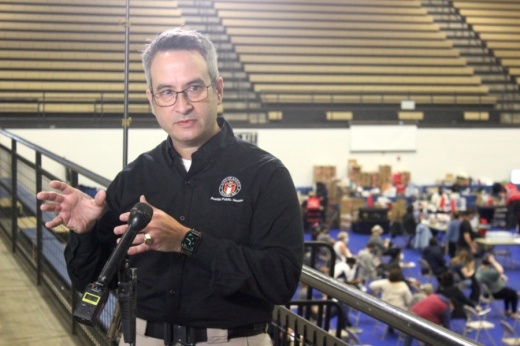Austin Public Health announced March 13 the city and county have downgraded from Stage 4 to Stage 3. The guidelines still recommend that residents avoid social gatherings and groups of more than 10, but the major change is that businesses are recommended to operate at 50-75% capacity, up from 25-50% in Stage 4.
The guidelines can only recommend certain behavior. Under Gov. Greg Abbott's orders, businesses across Texas are allowed to open to 100% capacity as of March 10. However, although Abbott has lifted a statewide mask mandate, the local orders requiring masks remain in place. Texas Attorney General Ken Paxton sued the city and county to lift the orders, which will remain in place at least for the next two weeks until there is another hearing.
Under the Stage 3 guidelines, residents should continue behaviors to ensure safety such as wearing a mask, social distancing and practicing good hygiene, according to Austin Public Health.
“We are seeing more people getting vaccinated as supply to our area continues to increase,” APH Director Stephanie Hayden-Howard said in a release. “Our most vulnerable are becoming protected and we are hopeful that because of this our numbers will continue to decline, but it remains important to continue all prevention measures.”
Travis County vaccine providers are receiving a total of 58,430 doses this week from the Department of State Health Services, less than the nearly 75,000 doses county providers were allocated last week.
That is not because the state or the federal government is snubbing the capital area, according to Austin-Travis County Health Authority Dr. Mark Escott. Vaccines are allocated based on population. However, recent growth in Texas and in Travis County does mean the population is being undercounted when it comes to vaccine distribution.
The U.S. Government uses 2018 U.S. Census data when it allocates vaccines based on population, and Texas added nearly 297,000 adults between 2018 and 2019. Travis County grew at a similarly fast rate, adding 25,804 residents over the age of 18 in the same time period.
Because there are still about 200,000 eligible people in line to receive the vaccine in APH's system, the public health provider will not begin making appointments available to residents aged 50-64. Under state guidelines, those individuals will become eligible to receive the vaccine starting March 15 as part of Phase 1C of the state's rollout.
Escott said once supply increases, the waitlist goes down and the technological systems are in place, APH will begin vaccinating residents aged 50-64. APH has been consistently receiving 12,000 doses per week from the state, including the week of March 15.
"It takes time for us to modify the IT system so we can identify [people aged 50-64] as eligible and then we can sort out what percentage of the vaccine will go to those individuals," Escott said.





